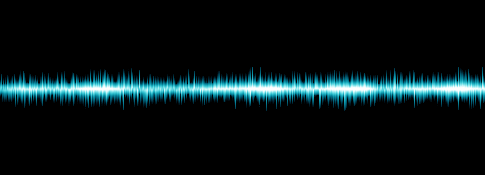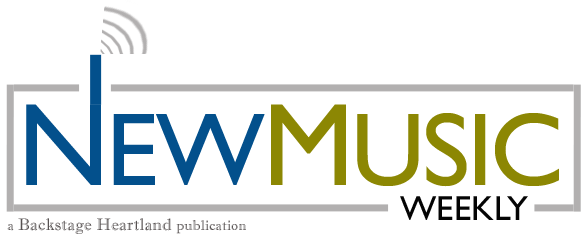

HTL Consulting Group
M u s i c P r o m o t i o n S e r v i c e s
LABEL SUPPORT SERVICES
Stop/Play
#Aircheck Samples

Local - Regional - National - International










.png)


ISRC & UPC Code FA
What are ISRC Codes and why do I need them?
Is the ISRC code different from a UPC code?
How much does it cost to register ISRC codes for my songs or videos?
My business is outside of the United States, can I still purchase my ISRCs from you?
How do I get ISRC Codes for my music and video?
What do I get when I order my ISRC Codes?
Do I need an ISRC Code for my album or a UPC code?
Do same songs occurring on multiple releases require different ISRC codes?
How do I handle ISRC codes for cover songs?
Do I need a separate ISRC code for my music videos?
Can I get ISRC codes before I have all of my track information finalized?
What is the best way to submit my track info if I didn't submit it all at the time of purchase?
Are the dashes (-) part of my ISRC code?
How can my ISRC Codes be embedded in my music and video?
What do I need to know about listing directly with iTunes?
What is Nielsen SoundScan, why does it matter, and how do I register with it?
What do I need to know about ISRC Codes for Audio Books, Podcasts, and other Spoken Word Recordings?
What are ISRC Codes and why do I need them?
ISRC (International Standard Recording Code) is the globally recognized standard numbering system for audio and music video recordings. It comprises a 12-digit alphanumeric code and functions as a universal identification number for each sound recording.
ISRC codes are primarily used to identify and catalog individual songs (tracks) on an album. The ISRC allows you to get paid for digital music sales by ensuring that your royalties are tracked properly. ISRC codes are necessary to sell your individual tracks via iTunes and other online music distributors. They are also required for any songs that you plan to offer for streaming on Spotify and other streaming services.
Similarly, you need to get ISRC codes in order to have your songs participate in the Billboard charts. In order to have a chance at making the Billboard music charts, your release must be registered with Nielsen SoundScan using your ISRC codes for the individual tracks. If you do not register then your sales figures are not counted, and you remain invisible to the system.
ISRC Codes are also used to identify videos and spoken word recordings such as audio books, sermons, and training programs.
Is the ISRC code different from a UPC code?
Yes, it is. The International Standard Recording Code (ISRC) is a unique international identifier for sound and music video recordings. Unlike the Universal Product Code (UPC), the ISRC is tied to the recording in the track and not the carrier of the track (CD or digital sound file).
In short, the ISRC identifies individual tracks while the UPC identifies the complete album. (You can order both ISRC and UPC codes on our order form.)
How much does it cost to register ISRC codes for my songs or videos?
Only $2 per track and $30 to register!
For how many tracks do you need ISRCs: It's only $
The registration fee for your album, single, or DVD includes issuance of your ISRC codes, the collection of your track information, and the database registration of your tracks as required by the Recording Industry Association of America and IFPI.
Are there other ways of getting ISRC codes?
Yes, there are two other ways:
-
You could get them directly from the ISRC authority. But, they charge $95 and you will have to handle the assignment and registration on your own.
-
Some agents, labels, and other third parties offer ISRC services as part of a bundle of services that you hire them for. Sometimes they advertise this as "free ISRC codes". Read more here.
My business is outside of the United States, can I still purchase my ISRCs from you?
Yes, absolutely. We are authorized by the governing body of ISRC to issue International Standard Recording Codes to clients in ANY country.
How do I get ISRC Codes for my music and video?
You can obtain your ISRC codes from us today, using your Credit Card or Paypal account. Here is the process…
1st Go to our Order Page
2nd Place your order.
3rd Complete the track registration form. What if I do not have all of the information?
What do I get when I order my ISRC Codes?
1stUpon completion of your order, you receive an email confirmation of your ISRC Code purchase.
2ndSimply Barcodes assigns your official ISRC code for each track.
3rdWe email your ISRC code assignment to you via email.
4thWe file proper registration of your tracks with the Recording Industry Association.
When do I get my ISRC Codes?
The turn-around time from receipt of your track information is often within a few hours. All orders received before 4 p.m. Eastern Time on business days are completed the same day. Orders placed after 4 p.m. will be processed next business day.
Do I need an ISRC Code for my album or a UPC code?
The retailers, online distributors, and the Billboard Charts (Nielsen SoundScan) set forth these requirements:
You need ISRC codes for each track of your album. However, the album itself requires a UPC code. In fact, if you plan to sell your album as a digital download AND as a physical audio CD then you need 2 UPC codes: one for the digital album download and a second one for the physical audio CD. This is the only way that performance on your individual songs can be tracked versus sales of the physical audio CD versus downloads of the complete digital album.
What about Singles?
For singles, you definitely need an ISRC code for the track. It is highly recommended that you also get a UPC code for singles because a UPC code is required on a single by:
-
iTunes
-
Nielsen SoundScan to participate in the Billboard Charts
-
Retailers, if you plan to release the single as a physical CD
-
Even some of the aggregators, streaming sites, and download sites
Do same songs occurring on multiple releases require different ISRC codes?
No. The ISRC code for a song stays the same no matter what album this track occurs on. A new ISRC is required only if ANYTHING about the song changes (track length, title, audio mastering, etc.).
According to the ISRC Manual, a new ISRC must be issued when:
-
A sound recording is re-mixed or edited.
-
If a new fade changes the length of a track by more than 10 seconds.
-
Edits that change the length of a sound recording by more than 10 seconds (playing time is measured from the first recorded modulation to the last recorded modulation).
-
A previously released sound recording is partially used as part of a compilation.
-
A "full restoration" of a historical recording is performed by re-mastering, re-pitching, re-equalizing, de-noising or de-clicking a sound recording to meet contemporary quality standards. The registrant of the recording has discretion when making the determination between full re-mastering (sound restoration) and simple re-mastering (reproduction without sound restoration).
How do I handle ISRC codes for cover songs?
ISRC codes identify audio or video performances. Your cover is a different performance from the original. Hence, a cover song requires its own ISRC just like any other song. (When you complete our track data submission form, you simply list yourself or your band as the featured artist along with the track’s original title.)
Do I need a separate ISRC code for my music videos?
Yes, you do. The registrants must be able to distinguish between the ISRCs that are assigned to audio and those that are assigned to video. Conventionally, video ISRCs are identified with a “9” in position #8 of the 12-digit video ISRC code.
Can I get ISRC codes before I have all of my track information finalized?
Yes, you can get ISRC codes before having 100% of the track information finalized. We understand that you may need the ISRC codes for mastering but do not yet have complete track times, for example. That is OK!
For us to issue ISRC codes to you, only Artist and Track Title are required.
Please note, however, that we cannot register your tracks with the Recording Industry until you have returned to us and supplied the remaining information: Track Duration, Version, and Recording Date. You also should not file your Nielsen SoundScan registrations until then.
Are the dashes (-) part of my ISRC code?
ISRC codes look like this: **-***-**-*****. They are structured using dashes for easier readability. However, the dashes are NOT considered to be part of the 12-digit ISRC code. When entering your ISRC codes at an online music distribution site like iTunes, registering at Nielsen SoundScan, or encoding your ISRCs, you should enter it as a 12-digit code without dashes or spaces. (Unless, of course, they specifically instruct you to enter it differently.)
How can my ISRC Codes be embedded in my music and video?
We are often asked: How are ISRC codes embedded in music or video? There are two primary ways in which ISRC codes get encoded in your music and video:
1) Embedding ISRC Codes in your digital audio or video files for uploading and selling/streaming online.
2) Embedding ISRC Codes in the Master Audio CDs for duplication and mass production.
What do I need to know about listing directly with iTunes?
Please click for important information regarding using your ISRC Codes for iTunes.
What is Nielsen SoundScan, why does it matter, and how do I register with it?
In order to have a chance at making the Billboard music charts, any release must be registered with Nielsen SoundScan using UPC number (for the whole album) and ISRC codes (for the individual tracks). Without registration, the sales figures will not be counted, and will remain invisible to the system.
At the time of this FAQ’s publication, Nielsen SoundScan registration is still free of charge.
Please click for our Nielsen SoundScan Registration Guide.